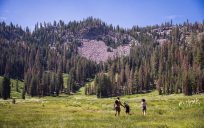A year ago I blogged about an inspiring guy I work with, 20 year-old youth worker Dan Davies, and how he uses Facebook for young people in Monmouthshire.
I had a catch up with him this week and found out about more cool ways of engaging young people using Facebook and thought I share some more of what’s he’s up to.
Our council allows all our employees to usesocial media at any time and our guidance is encouraging enough to give people like Dan the freedom he needs to do great things.
Over to Dan:
So how’s it going with Facebook Dan?
We’ve still got our county-wide Facebook Page for young people in Monmouthshire but we have moved on so much from that.
What we found was the page is well used and liked (and got lots of ‘Likes’) but it has lots of corporate information there and it was harder to engage people in events and issues at a more hyper-local level.
An event held in Abergavenny for instance wouldn’t interest a young person in Chepstow – young people have less opportunity to travel distances and are looking for things to do with life in their town.
We felt it was good for marketing things and for having discussions about what matters to young people – BUT, I learned from the way Monmouthshire people were using the page and I felt we could do this better.
Kids want to ask a question and get an answer in five or ten minutes. The area-based Pages we developed this year help us do that – five extra Facebook Pages, one for each town, with local youth staff members running a page.
I’m really interested in how these multiple pages have increased overall engagement. It reminds me of a great blog post written by the late Dan Harris which suggests with ‘Facebook… don’t go for big numbers… go for the right numbers‘. How did you manage you pages?
I set up the Pages with a consistent security level and assigned at least three members of staff monitoring each page.
This made things much more effective: local youth workers know their area and what happens so are better equipped to answer questions than I am on the main Monmouthshire Page.
Having three or more staff on each page means they are able to be more responsive as the workload is shared, often in shifts. Also from a safeguarding point of view it’s great – all of the administrators can look at each other’s conversations, review what’s being said and discuss things any areas of concern or things they think need to be developed.
What I love about this is that youth work is not something that comes with a rule book for every situation and this is a perfect way for youth workers to learn from each other and a prompt for professional debates.
Yes, it’s a great way to share good practice too – I’m often so impressed by the way our youth workers handle situations. Recently a dad posted that the youth service is useless at keeping people up to date on a particular topic. Within two minutes we had responded publicly with a polite thanks for the comment, and an explanation of how young people were issued with letter at beginning of term as well as other channels. The dad got back to say he had found the letter and all was well.
That all happened on a Saturday. If he’d tried to contact us at all by other means, he’d have found staff out of the office and nobody manning the phones. It was the weekend but we we happy to make sure he had the information he needed and understanding the the comment was made from frustration and it wasn’t an attack on how we work.
We’re allowed to use personal phones for work matters and staff are happy to use them – apps like the Facebook app for iPhone are tools that us carry out our work.
I can relate to that in my role – even if I’ve eaten up my free data on personal stuff I can hook my phone up to free wifi and it’s a dream to be able to talk to my networks on the move, at any time and place that’s convenient for me. Our philosophy in Monmouthshire is that work is something we do, not where we go.
I guess our young people are often on the move and want to communicate at all times and places?
Over the past year social media has developed for us and it’s become invaluable – our strapline is ‘working with young people where they’re at’. They can talk to us in bed if they want, or on holiday or wherever. Everyone is using it – why wouldn’t we?
To answer this we expanded the team, and are working towards rolling out free wifi in all youth service buildings – it doesn’t restrict people from using social media and useful websites, or expect kids to pay a fee like in some local café others buildings. The effect of this is that the number of people accessing our centres has massively increase
d because of the access to wifi.
That’s a great example of how online relationships can increase our offline contact. What are the lessons you’ve learned this year Dan?
Content
The first is that Facebook can’t operate by itself – kids don’t want to just have information forced at them – we have to tailor our content to our audiences.
We’ve found Chepstow is very discussion led, Abergavenny kids are really into their skatepark. So we get chats started on the Chepstow Page and I take and upload photos of kids in Abergavenny skatepark and wait for them to tag themselves. They’re instantly engaged and it draws them to other stuff on our page that might interest them.
Actually photos in general work brilliantly. We often put galleries on our website and link to them and we get likes and conversation from kids, parents, ex-teachers – lots of interest.
Do it for the right reasons
Also it’s important to look the the right kind of engagement.
Initially there was a bit of competetive spirit between staff who were looking for extra likes on their page – they were getting their friends to like it, and sometimes they’d would post with other staff in mind more than young people. We’ve learned now that we have to think about our audiences.They asking themselves, ‘is Facebook the right place for this info?’ and i not it’ll putt people off. Our objective is the be useful and entertaining for young people, not to big ourselves up for getting lots of ‘Likes’ or posting lots of content.
Personality
Young people want to talk to staff not a youth service badge – our posts need to be personal. We encourage staff to say to say ‘I’ll be there’, not talk like a faceless organisation.
We have be careful youth workers are in the right position to do it – We’ve given youth workers training and a briefing paper on how to make your profile private and discuss issues to do with controlling our personal and professional personas. All of our boundaries are different so we make sure everyone is comfortable in contacting me or you to troubleshoot.
Embrace apps
We’re learning on the job from real experience, Facebook is evolving and making things easier – recent upgrade in app was very popular with youth service staff, things like changes in the photo gallery really improve the experience of viewing for our young people and the new uploader is so quick, it’s great.
Thanks Dan , keep up the fantastic work!




Very interesting post – especially from the youth perspective. We have also found that pictures get a great response on our city’s Facebook page. Any way to get a copy of the briefing paper he uses to help people keep their personal and personal personas?
Thanks for sharing.